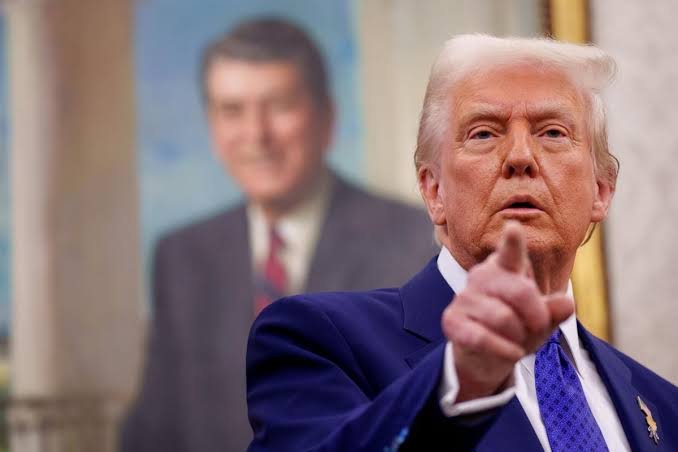Photo credit: Toronto Star
US President Donald Trump has unveiled a new trade policy, dubbed the “Fair and Reciprocal Plan,” aimed at countering what he calls unfair international trade practices.
ic reports that part of the plan takes specific aim at Canada’s Digital Service Tax (DST), which the US claims unfairly targets American tech companies.
According to the White House, Canada and France each collect $500 million annually from American firms through digital services taxes, with total global costs exceeding $2 billion per year. Trump argued that only the US should have the right to tax its own companies and sees these levies as an unfair burden on American businesses.
The plan could lead to new reciprocal tariffs, which the US hopes will pressure countries like Canada to drop or adjust their digital service tax policies.
While details of the trade measures are still in development, the announcement signals a potential shift in US-Canada trade relations and a tougher stance on international taxation policies affecting American companies.
“Reciprocal tariffs will bring back fairness and prosperity to the distorted international trade system and stop Americans from being taken advantage of,” said the plan’s factsheet. So that could mean a similar digital tax on Canadian companies operating in the US that offers services.
The tax will be retroactively applied dating back to 2022 and targets revenue from companies providing digital services to Canadians or selling Canadian user data. This targets big tech firms like Google, Amazon, Meta, and Microsoft. it also goes after digital marketplaces like eBay, Amazon and Airbnb. Netflix, TikTok and Spotify are also in the spotlight for any subscription fees or user engagement driven in Canada. Ottawa says these companies need to pay their fair share.
Former Finance Minister Chrystia Freeland has defended the tax saying, it ensures digital companies pay their fair share, with projections estimating it will generate CAD 2.3 billion by March 2025 and nearly $6 billion over five years. The feds previously waited on a global tax agreement backed by the former Biden administration, but delays pushed Ottawa to proceed independently.
Business groups in Canada have criticized the tax. They warned it will increase prices for consumers and harm trade ties.








“There’s something intriguing about you… care to share your secrets?”
My secret is reading!